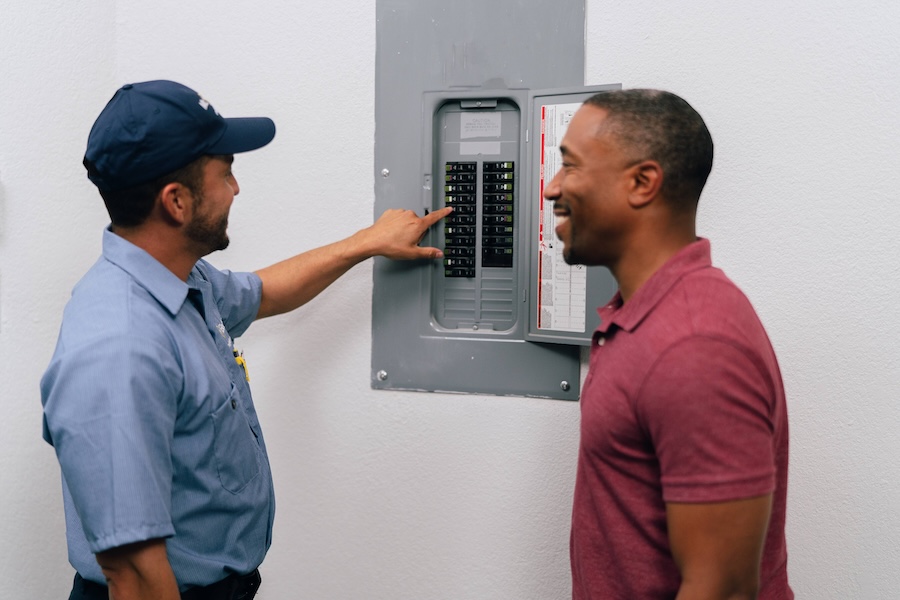Emergency Certified Electricians in Dallas, TX.
Call this Tuesday to Get 10% OFF
Emergency Certified Electricians in Dallas, TX.
Call this Tuesday to Get 10% OFF

If you ask the average homeowner the difference between a fuse box and a circuit breaker, chances are they might not know. Some may say they’re the same thing. However, while both help to protect your home from electrical overloads and short circuits, the way they function and the level of safety they provide are quite different. Understanding how each one works can help you identify potential risks in your electrical system and determine if your home is due for an upgrade.
Here at Mr. Electric, we know a thing or two about fuse boxes and circuit breakers. Our electricians have been upgrading electrical systems for decades, delivering exceptional services every time. Today, we’ll walk you through the differences between a fuse box and a circuit breaker. Contact us when you need an expert to help you with circuit installation and upgrades.
A fuse box is an older type of electrical safety device that protects your home by using fuses—small components with thin metal wires that melt when too much current flows through them. When the fuse “blows,” it cuts off the flow of electricity to prevent damage to wiring and appliances. While effective, this system has a major drawback: once a fuse blows, it needs to be replaced with a new one. This can be inconvenient, especially if you don’t have spare fuses on hand or if the fuse box is located in a hard-to-reach area. If you still rely on a fuse box, reach out to a nearby electrical repair service to help you install a breaker panel in Highland Park.
Modern homes are equipped with circuit breakers instead of fuses. A circuit breaker provides protection against electrical overloads but in a more efficient and reusable way. When a circuit breaker detects an overload or short circuit, it automatically “trips” and shuts off power to that circuit. Once the issue is resolved, you simply flip the switch back to restore power. Circuit breakers are more convenient, safer, and easier to manage than fuse boxes, making them a preferred choice for most homeowners.
The biggest difference between a fuse box and a circuit breaker lies in how they respond to electrical issues. Fuses rely on a one-time-use component that melts, while breakers use a mechanical switch that can be reset. Fuse boxes are found in older homes and may not be equipped to handle the high electrical demands of modern appliances. On the other hand, circuit breakers offer greater flexibility and can be upgraded to support modern electrical loads, including smart home systems and high-powered kitchen or entertainment equipment.
If your home still relies on a fuse box, it may be time to consider switching to a circuit breaker panel. Some of the common warning signs to watch out for include frequent blown fuses, flickering lights, warm outlets, or circuits that can’t handle everyday appliance use. A licensed electrician can evaluate your electrical system, recommend the right solution, and ensure your home’s wiring is up to modern standards. Reach out to the experts at Mr. Electric when it’s time to upgrade to a circuit breaker panel.
Do you need electrical repair service? Are you looking to upgrade to a breaker panel? Is it time for circuit installation or upgrades? Get in touch with Mr. Electric for all your residential and commercial electrical needs. For over 25 years, we’ve offered reliable and cost-effective electrical services in the areas we serve. From rewiring homes to circuit breaker installation, electrical outlet replacement, electrical panel repair, and lighting repair, we’ve got you covered.